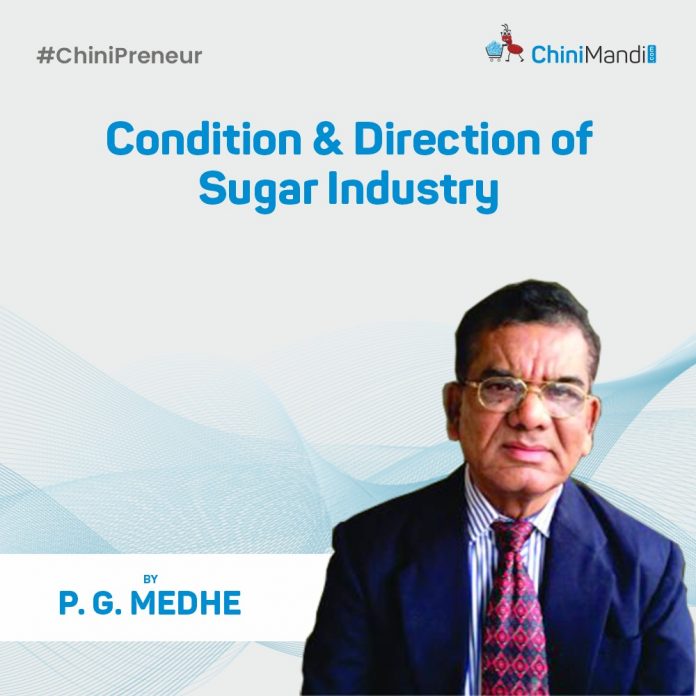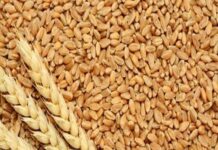Artificial Intelligence (AI) is revolutionizing the sugar industry by enhancing various aspects of sugarcane cultivation, processing, and sustainability. The integration of AI technologies, such as machine learning and computer vision, offers significant improvements in crop management and operational efficiency. AI’s ability to analyze vast amounts of data from weather patterns, soil quality, and disease incidence allows for the creation of predictive models that optimize crop health and yield. This proactive approach helps farmers anticipate and mitigate risks associated with unpredictable weather events, pest invasions, and disease outbreaks. Moreover, AI facilitates early disease detection by identifying symptoms before they become visible to the human eye, thus enabling timely interventions. The technology also supports decision-making in sugar mills by providing predictive insights, which enhance operational efficiency and productivity.
It is very alarming to note that Sahakar Maharshi Shankarrao Kolhe Cooperative Sugar Factory Ltd, Kopargaon, Ahilyanagar (Maharashtra) has been implemented the AI technique in Sugarcane Plantation, it’s diseases control, fixing fertiliser doses according to land requirement, Crop position, Cane registration, Crop mapping, comparison of results received from mill test and results received from App, Scientific Sugarcane Harvesting and Transport program according to cane maturity etc under guidance of Shriman Bipin Dada S. Kolhe, Chairman Sanjivani Sugar Complex, Sugar Factory Chairman Shri Vivek Bhaiyya B. Kolhe and Managing Director Mr. Bajirao Sutar. This is the first cooperative sugar factory amongst the cooperative sugar factories around the country who has successfully implemented the AI technique during the last two crushing seasons and achieved better results. This AI technique has been developed by Mahindra and Gamaya Switzerland.
Implementing AI in the sugar industry, while challenging due to the required investment and infrastructure development, is crucial for achieving sustainability goals and enhancing bioethanol production from sugarcane1. Collaborative efforts among stakeholders, robust data security measures, and ongoing research are essential to fully realize the potential of AI in this sector.
AI APPLICATION IN SUGARCANE CULTIVATION:
Mm mAI applications in sugarcane cultivation are transforming traditional farming practices by introducing precision agriculture techniques. Here are some key areas where AI is making a significant impact.
- Crop Monitoring and Management –AI-powered satellite imagery is used to monitor sugarcane fields. These technologies provide real-time data on crop health, growth stages, and potential issues such as pest infestations or nutrient deficiencies. Machine learning algorithms analyze this data to offer actionable insights, helping farmers make informed decisions about irrigation, fertilization, and pest control.
- Predictive Analytics –AI models predict optimal planting and harvesting times by analyzing historical weather data, soil conditions, and crop performance. This helps in maximizing yield and reducing losses due to adverse weather conditions. Predictive analytics also assist in forecasting market demand and prices, enabling farmers to plan their production and sales strategies more effectively.
- Disease Detection and Management – AI systems can detect early signs of diseases in sugarcane crops through image recognition and pattern analysis. By identifying symptoms that are not visible to the naked eye, AI enables early intervention, reducing the spread of diseases and minimizing crop damage. This is particularly useful for managing common sugarcane diseases like red rot and smut.
- Automated Irrigation Systems –AI-driven irrigation systems use sensors to monitor soil moisture levels and weather forecasts to optimize water usage. These systems ensure that crops receive the right amount of water at the right time, improving water efficiency and reducing waste. This is crucial in regions where water scarcity is a concern.
- Yield Prediction –Machine learning algorithms analyze various factors such as soil quality, weather patterns, and crop management practices to predict sugarcane yield. Accurate yield predictions help farmers plan their resources and logistics, ensuring a smooth harvesting process and efficient use of labor and machinery.
- Precision Fertilisation –AI helps in determining the precise amount and type of fertilizers needed for different parts of the field. By analyzing soil samples and crop requirements, AI ensures that nutrients are applied efficiently, promoting healthy crop growth and reducing environmental impact.
- Supply Chain Optimization –AI optimizes the supply chain by predicting demand, managing inventory, and scheduling transportation. This reduces wastage, ensures timely delivery of produce, and enhances overall efficiency in the sugarcane supply chain.
Implementing these AI applications requires investment in technology and training for farmers, but the benefits in terms of increased productivity, sustainability, and profitability are substantial.
IMPORTANCE OF AI FOR ACCURATE ESTIMATION OF CANE AVAILABILITY FOR PROPER & TIMELY POLICY DECISIONS OF ALL THE STAKEHOLDERS & GOVERNMENT: AI plays a crucial role in accurately estimating cane availability, which is essential for making informed decisions across various aspects of the sugar industry. Here’s a detailed look at how AI contributes to different areas:
- Sugar Factory Operations-Accurate estimation of cane availability helps sugar factories plan their operations efficiently. AI models analyze data from satellite imagery, weather patterns, and historical crop performance to predict the amount of sugarcane that will be harvested. This enables factories to optimize their processing schedules, reduce downtime, and ensure a steady supply of raw material1.
- Production Estimates-AI-driven yield prediction models use machine learning algorithms to forecast sugarcane production. These models consider factors such as soil quality, weather conditions, and crop management practices. Accurate production estimates help in planning the logistics of harvesting, transportation, and storage, ensuring that resources are used efficiently.
- Government Decisions on Sugar Consumption –Governments rely on accurate data to make decisions about sugar consumption and policy-making. AI provides reliable estimates of sugarcane production, which helps in setting quotas, determining subsidies, and planning for public distribution systems. This ensures that there is enough sugar to meet domestic demand without causing shortages or surpluses.
- Import/Export Planning –AI helps in forecasting the surplus or deficit of sugarcane production, which is critical for making import/export decisions. By predicting the amount of sugarcane available, governments and industry stakeholders can plan for international trade, ensuring that the country meets its export commitments and imports only when necessary.
- Ethanol Blending Program (EBP) –The Ethanol Blending Program aims to blend ethanol with petrol to reduce carbon emissions and dependence on fossil fuels. Accurate estimation of cane availability is vital for this program, as it determines the amount of sugarcane that can be diverted for ethanol production. AI models help in balancing the needs of sugar production and ethanol blending, ensuring that both sectors are adequately supplied1.
- Taxation and Revenue Planning –Governments use production estimates to plan taxation and revenue collection. Accurate data on sugarcane production helps in setting appropriate tax rates and ensuring that the industry contributes fairly to the economy. AI-driven predictions provide a reliable basis for these financial decisions.
- Supply Chain Management –AI optimizes the entire supply chain by predicting cane availability and ensuring that all stakeholders, from farmers to processors, are well-informed. This reduces wastage, improves efficiency, and ensures that the supply chain operates smoothly. AI also helps in managing inventory and scheduling transportation, which are critical for timely delivery of sugarcane to factories.
- Sustainability and Environmental Impact –AI contributes to sustainable farming practices by optimizing resource use and reducing environmental impact. Accurate predictions of cane availability help in planning crop rotations, managing soil health, and reducing the use of chemical inputs. This promotes sustainable agriculture and helps in meeting environmental regulations.
By leveraging AI, the sugar industry can make more informed decisions, improve operational efficiency, and contribute to economic growth
USE OF AI FOR OPTIMISING SOPs OF VARIOUS SECTIONS OF SUGAR FACTORIES FOR ACHIEVING REDUCTION IN COST OF PRODUCTION AND IMPROVING PRODUCTIVITY: AI can significantly enhance the efficiency and productivity of sugar factories by optimizing Standard Operating Procedures (SOPs) across various sections. Here’s how AI can be useful.
- Data Integration and Analysis- AI systems can integrate data from various sources such as sensors, historical records, and real-time monitoring systems. By analyzing this data, AI can identify patterns and inefficiencies in current SOPs, suggesting improvements that enhance productivity and reduce costs.
- Predictive Maintenance-AI-driven predictive maintenance helps in identifying potential equipment failures before they occur. By analyzing data from machinery, AI can predict when maintenance is needed, preventing unexpected breakdowns and reducing downtime. This ensures that all sections of the factory operate smoothly and efficiently.
- Process Optimization-AI can optimize processes by continuously monitoring and adjusting parameters to maintain optimal conditions. For example, in the milling section, AI can adjust the speed and pressure to maximize sugar extraction while minimizing energy use. This leads to higher yields and lower production costs.
- Quality Control-AI systems can enhance quality control by using machine learning algorithms to detect anomalies in the production process. By identifying deviations from the standard quality parameters, AI ensures that the final product meets the required standards, reducing waste and rework.
- Energy Management –AI optimises energy use by monitoring consumption patterns and adjusting operations to reduce energy waste. For instance, AI can schedule high-energy-consuming processes during off-peak hours when energy costs are lower, leading to significant cost savings.
- Supply Chain Optimisation –AI improves supply chain efficiency by predicting demand, managing inventory, and optimizing logistics. This ensures that raw materials are available when needed and that finished products are delivered on time, reducing storage costs and improving overall efficiency.
- Training and Skill Development –AI can be used to develop training programs for factory workers, ensuring they are well-versed in the latest SOPs and best practices. By providing personalized training based on individual performance data, AI helps in enhancing the skills of the workforce, leading to better productivity.
- Regulatory Compliance –AI helps in ensuring compliance with regulatory standards by continuously monitoring processes and generating reports. This reduces the risk of non-compliance and associated penalties, ensuring smooth operations.
- Real-Time Decision Making –AI provides real-time insights and recommendations, enabling managers to make informed decisions quickly. This agility helps in addressing issues promptly and maintaining optimal production levels.
- Cost Reduction –By optimizing processes, reducing downtime, improving quality control, and managing energy use, AI significantly reduces the overall cost of production. These savings can be reinvested in further improving factory operations and achieving better productivity.
By Implementing AI in sugar factories it will be easier to achieve the long-term benefits in terms of efficiency, and increased productivity which in turn contribute to a more sustainable and profitable industry.
USE AI FOR QUALITY IMPROVISATION BY AUTOMATIC INSPECTION: AI significantly enhances quality control in sugar factories by automating inspection processes, improving accuracy, and ensuring consistent product quality. Here are some key ways AI impacts quality control:
- Automated Visual Inspection –AI-powered systems use computer vision to automate the visual inspection of sugar products. These systems can detect defects, impurities, and inconsistencies that might be missed by human inspectors. By analyzing images in real-time, AI ensures that only high-quality products proceed to the next stage of production1.
- Real-Time Monitoring and Adjustments –AI continuously monitors production parameters such as temperature, pressure, and moisture levels. By analyzing this data in real-time, AI can make immediate adjustments to maintain optimal conditions, ensuring consistent product quality. This reduces the likelihood of defects and improves overall efficiency2.
- Predictive Quality Analytics –Machine learning algorithms analyze historical data to predict potential quality issues before they occur. By identifying patterns and trends, AI can forecast when and where defects are likely to happen, allowing for proactive measures to prevent them. This predictive capability helps in maintaining high standards of quality throughout the production process.
- Enhanced Traceability –AI systems enhance traceability by tracking each batch of sugar from raw material to finished product. This detailed tracking helps in identifying the source of any quality issues, making it easier to implement corrective actions. Enhanced traceability also ensures compliance with regulatory standards and improves consumer trust.
- Consistency in Product Quality –AI ensures that production processes are consistent, reducing variability in product quality. By standardizing operations and continuously optimizing parameters, AI helps in producing sugar that meets the desired quality specifications every time.
- Reduction in Waste –By detecting defects early and optimising processes, AI reduces waste in sugar production. This not only improves efficiency but also lowers production costs. Reduced waste also contributes to more sustainable manufacturing practices.
- Integration with Other Systems –AI can integrate with other factory systems, such as ERP (Enterprise Resource Planning) and MES (Manufacturing Execution Systems), to provide a comprehensive view of the production process. This integration allows for better coordination and control, further enhancing quality management.
- Training and Skill Development –AI can be used to train factory workers on quality control best practices. By providing real-time feedback and insights, AI helps workers improve their skills and adhere to quality standards. This continuous learning process ensures that the workforce is always up-to-date with the latest quality control techniques.
By Implementing AI in quality control, factories can gain a competitive edge in the market.
IMPACT OF USE OF AI ON AVAILABILITY OF CANE, EBP AND OVERALL ECONOMY OF THE COUNTRY:
1) Enhancing Productivity –
Precision Agriculture: AI enables precision farming techniques, optimizing the use of resources such as water, fertilizers, and pesticides. This leads to healthier crops and higher yields.
Predictive Analytics: AI models predict optimal planting and harvesting times by analyzing weather patterns, soil conditions, and crop performance. This helps in maximizing yield and reducing losses due to adverse weather conditions.
Disease Detection: AI systems can detect early signs of diseases in sugarcane crops through image recognition and pattern analysis, allowing for timely interventions and reducing crop damage.
2) Increasing Sugarcane Availability for EBP-
Yield Prediction: AI-driven yield prediction models provide accurate estimates of sugarcane production, ensuring that sufficient quantities are available for ethanol production under the Ethanol Blending Program (EBP).
Resource Optimization: By optimizing the use of inputs and improving crop health, AI increases the overall availability of sugarcane, supporting higher ethanol production.
3) Economic Impact-
Improving Balance of Payments: Increased ethanol production reduces the need for imported fossil fuels, improving India’s balance of payments. This contributes to a stronger economy and better trade balance.
Global Ranking: Enhanced productivity and increased ethanol production can position India as a leading player in the global biofuel market, improving its ranking and influence.
4) Environmental and Sustainability Benefits-
Sustainable Practices: AI promotes sustainable farming practices by optimizing resource use and reducing environmental impact. This aligns with global sustainability goals and enhances India’s reputation in sustainable agriculture.
Carbon Emission Reduction: By supporting the EBP, AI helps in reducing carbon emissions, contributing to global efforts to combat climate change.
Implementation of AI in the sugar industry has long-term benefits in terms of productivity, economic growth, and sustainability by which India can achieve significant advancements in its agricultural sector and strengthen its position in the global market.
In conclusion, the integration of Artificial Intelligence in the sugar industry marks a transformative step towards achieving sustainability and enhancing productivity. By leveraging AI technologies, the industry can optimize resource use, improve crop yields, and ensure consistent product quality. These advancements not only bolster the economic growth of the sector but also contribute significantly to India’s balance of payments by reducing dependency on fossil fuel imports through increased ethanol production. As India embraces AI-driven innovations, it positions itself as a global leader in sustainable agriculture and biofuel production, paving the way for a more resilient and prosperous future. The adoption of AI in the sugar industry is not just a technological upgrade; it is a strategic move towards a sustainable and economically robust global presence.
P.G. Medhe is the former Managing Director of Shri Chhatrapati Rajaram Sahakari Sakhar Karkhana Ltd and sugar industry analyst. He can be contacted at +91 9822329898.












